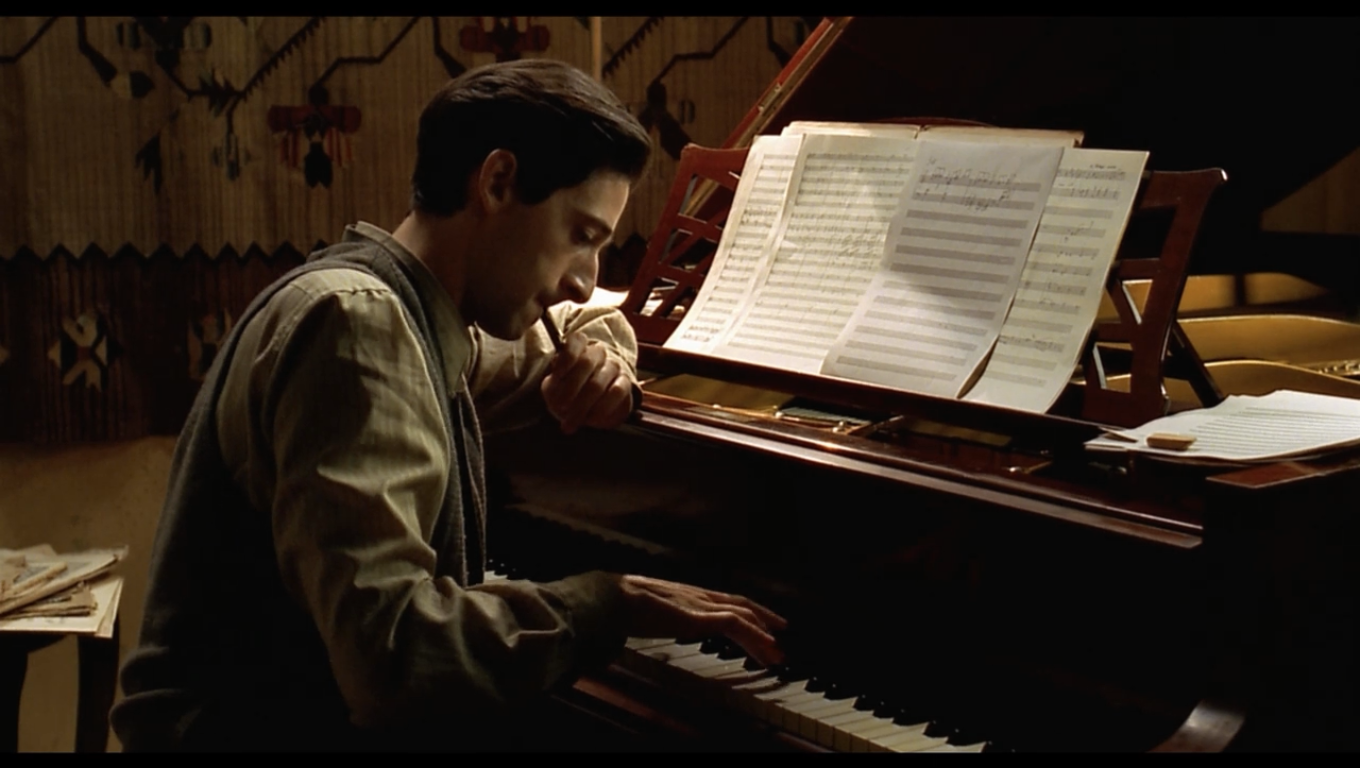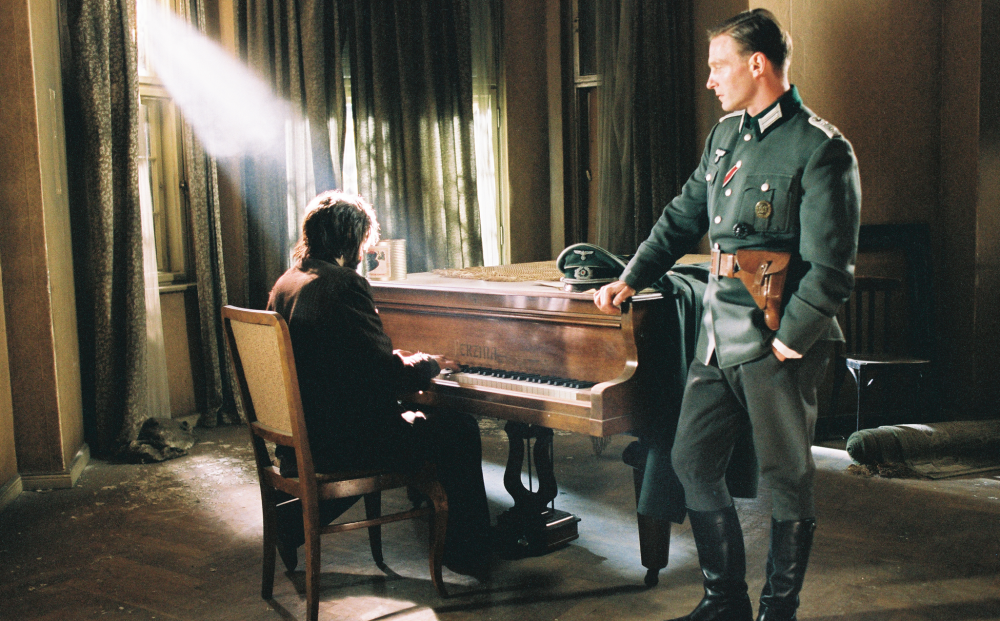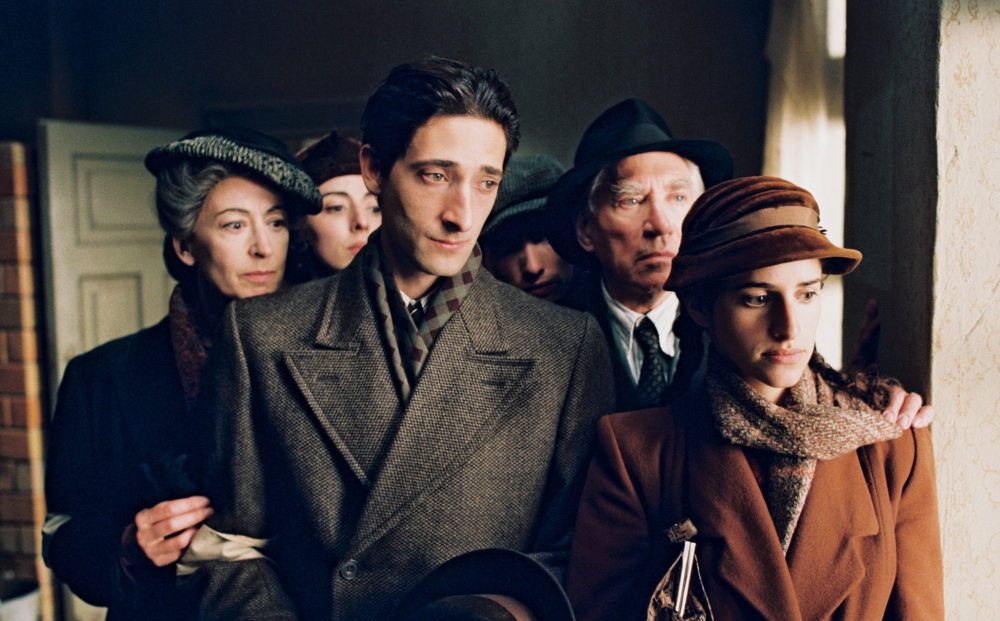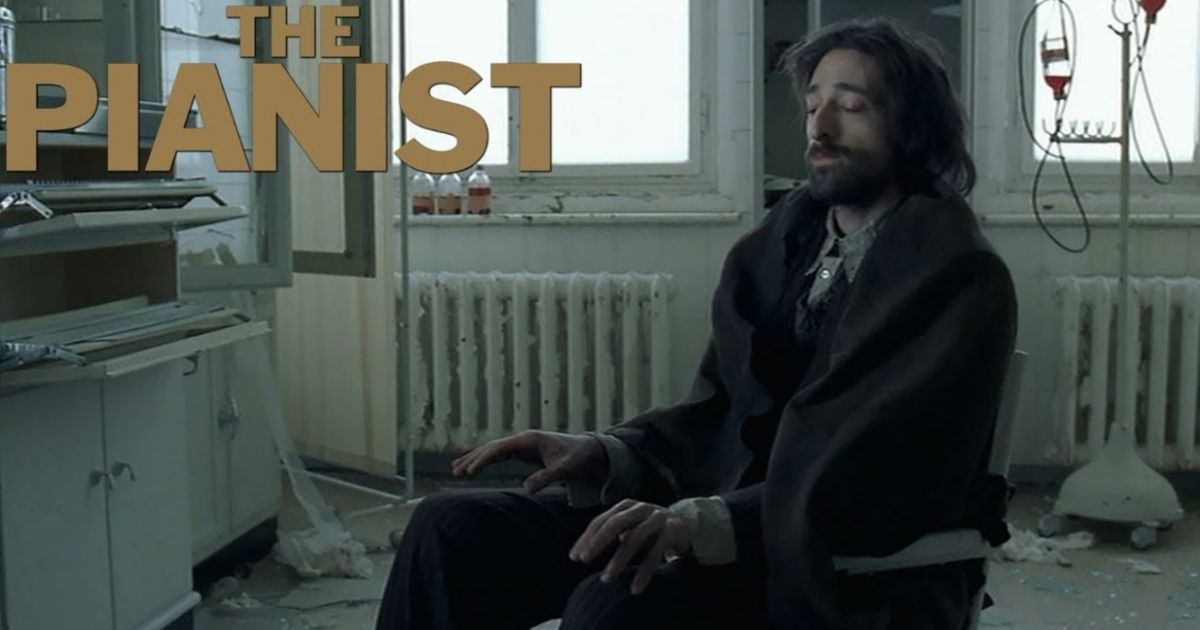The Pianist" Review: A Poignant Portrayal of Survival, Resilience, and the Power of Music
Introduction:
"The Pianist," directed by Roman Polanski and released in 2002, is a poignant and powerful film based on the true story of Władysław Szpilman, a Polish Jewish pianist who survived the Holocaust in Warsaw during World War II. Through masterful storytelling and captivating performances, the film offers a harrowing glimpse into the horrors of war, while also celebrating the indomitable human spirit and the transformative power of music. In this review, we delve into the compelling narrative, powerful performances, and enduring impact of "The Pianist."
Synopsis:
Set in Warsaw, Poland, "The Pianist" follows the journey of Władysław Szpilman, a talented pianist and composer, as he navigates the tumultuous events of World War II. As the Nazi occupation of Poland intensifies, Szpilman and his family are forced into the Warsaw Ghetto along with thousands of other Jews. Despite the deplorable conditions and constant threat of violence, Szpilman manages to escape deportation to the concentration camps and goes into hiding with the help of a network of brave individuals.
Alone and isolated, Szpilman struggles to survive in the war-torn city, facing hunger, fear, and despair on a daily basis. However, his passion for music sustains him, providing solace and inspiration in the darkest of times. Through a series of chance encounters and narrow escapes, Szpilman manages to evade capture and death, ultimately surviving until the end of the war.
Themes:
"The Pianist" explores a myriad of themes, including survival, resilience, identity, and the human capacity for both cruelty and compassion. At its core, the film is a testament to the strength of the human spirit and the will to survive against all odds. Through Szpilman's journey, we witness the triumph of hope over despair, as he clings to his love of music as a source of solace and salvation amidst the chaos and devastation of war.
Moreover, "The Pianist" sheds light on the moral complexities and ambiguities of wartime survival, as individuals are forced to make difficult choices in order to stay alive. Szpilman's encounters with both collaborators and resistance fighters highlight the moral ambiguity of human behavior in extreme circumstances, challenging notions of heroism and villainy in times of crisis.
Performance:
Adrien Brody delivers a tour de force performance as Władysław Szpilman, capturing the character's emotional depth, vulnerability, and resilience with remarkable nuance and sensitivity. Brody's portrayal is understated yet powerful, conveying Szpilman's inner turmoil and quiet strength with a haunting intensity. His physical transformation, as he deteriorates physically and emotionally throughout the film, is both convincing and heartbreaking, earning him the Academy Award for Best Actor.
Supporting performances from actors such as Thomas Kretschmann, Frank Finlay, and Emilia Fox also contribute to the film's authenticity and emotional impact, with each actor bringing depth and humanity to their respective roles. Polanski's direction, meanwhile, is masterful in its restraint, allowing the story and characters to speak for themselves without resorting to melodrama or sentimentality.
Visuals and Soundtrack :
:
"The Pianist" is visually stunning, with Polanski and cinematographer Paweł Edelman capturing the stark beauty and devastation of war-torn Warsaw with haunting precision. The film's muted color palette and atmospheric lighting evoke a sense of bleakness and despair, while its evocative use of sound design and music enhances the emotional impact of key scenes.
Of course, music plays a central role in "The Pianist," with Szpilman's piano performances serving as both a narrative device and a source of emotional resonance throughout the film. The film's soundtrack, featuring classical compositions by composers such as Frédéric Chopin and Johann Sebastian Bach, underscores the film's themes of beauty, resilience, and transcendence, offering moments of solace and catharsis amidst the horror and brutality of war.
Impact and Legacy:
"The Pianist" is more than just a film; it is a profound meditation on the human experience and the enduring power of art in the face of adversity. Its themes of survival, resilience, and the redemptive power of music resonate deeply with audiences around the world, inspiring reflection, empathy, and compassion.
Moreover, "The Pianist" serves as a powerful reminder of the atrocities of the Holocaust and the importance of bearing witness to history's darkest chapters. By shining a light on the experiences of individuals such as Władysław Szpilman, the film honors the memory of the millions of lives lost and reaffirms the commitment to never forget.
In conclusion, "The Pianist" is a cinematic masterpiece that transcends genre and convention, offering a profound and deeply moving exploration of the human spirit in the face of unimaginable adversity. Through its compelling narrative, powerful performances, and evocative visuals, the film leaves an indelible impression on audiences, reminding us of the enduring power of art to illuminate, inspire, and heal in even the darkest of times.
- Historical Accuracy and Authenticity:

- One of the strengths of "The Pianist" lies in its commitment to historical accuracy and authenticity. The film is based on the memoir of Władysław Szpilman, ensuring that the narrative remains faithful to the real-life experiences of its protagonist. Roman Polanski, himself a Holocaust survivor, brings a personal and intimate perspective to the film, infusing it with a sense of authenticity and emotional resonance.
The attention to detail in recreating the period setting, from the costumes and set design to the depiction of everyday life in war-torn Warsaw, further enhances the film's authenticity and immerses the audience in the world of the characters. The use of real locations, including the remnants of the Warsaw Ghetto and other historical sites, adds to the film's sense of verisimilitude and serves as a powerful reminder of the horrors of the Holocaust.
- Cultural and Sociopolitical Context:
- "The Pianist" is deeply rooted in the cultural and sociopolitical context of its time, offering a nuanced portrayal of life in Nazi-occupied Poland during World War II. The film explores themes of anti-Semitism, collaboration, resistance, and the complex dynamics of power and oppression in wartime Europe. By depicting the experiences of ordinary individuals caught up in extraordinary circumstances, the film sheds light on the human cost of war and the enduring legacy of trauma and resilience.
Moreover, "The Pianist" offers a poignant commentary on the enduring power of art and culture in the face of totalitarianism and persecution. Szpilman's love of music serves as a powerful metaphor for the human spirit's capacity to transcend suffering and find beauty and meaning in the most dire of circumstances. Through his music, Szpilman is able to preserve his dignity, reclaim his humanity, and assert his identity in a world that seeks to dehumanize and destroy him.
- Legacy and Cultural Impact:

- "The Pianist" has left an indelible mark on both cinema and popular culture, earning widespread acclaim from critics and audiences alike. The film received numerous accolades, including three Academy Awards for Best Director, Best Adapted Screenplay, and Best Actor, cementing its status as a cinematic masterpiece.
Beyond its critical and commercial success, "The Pianist" has also had a lasting impact on public consciousness and awareness of the Holocaust. By bringing Szpilman's story to the screen with sensitivity and empathy, the film has helped to preserve the memory of the Holocaust and ensure that the voices of its survivors are heard and honored.
Moreover, "The Pianist" has inspired countless individuals to reflect on themes of survival, resilience, and the power of art in the face of adversity. Its message of hope and redemption continues to resonate with audiences around the world, reminding us of the enduring power of the human spirit to triumph over tragedy and injustice. In conclusion, "The Pianist" stands as a timeless masterpiece of cinema, offering a poignant and powerful portrayal of survival, resilience, and the transformative power of music in the face of unimaginable adversity. Through its compelling narrative, powerful performances, and profound thematic resonance, the film leaves an indelible impression on audiences, inspiring reflection, empathy, and remembrance for generations to come.
In conclusion, "The Pianist" stands as a timeless masterpiece of cinema, offering a poignant and powerful portrayal of survival, resilience, and the transformative power of music in the face of unimaginable adversity. Through its compelling narrative, powerful performances, and profound thematic resonance, the film leaves an indelible impression on audiences, inspiring reflection, empathy, and remembrance for generations to come.





















































